Numerous Outs Such As Lack of Competing Hotels, Extraordinary Events To Monitor
On many occasions a performance test is effectively the only way for a hotel owner to terminate a hotel management agreement (HMA). However, in practice, triggering the performance test could become a real challenge given numerous usual carve outs and releasing events (force majeure or so-called extraordinary events, lack of competing hotels to form a competitive set, etc.), which could potentially prevent the owner from exercising its termination right.
Whilst the success of this exercise ultimately depends on specific terms of a particular HMA, in this article we focus on some practical aspects of the most common releasing events used by the operators to help build a line of defense for the owner.
Market Slowdown and Change in Economic and Market Conditions
In the past, a force majeure/extraordinary events clause in a typical HMA was more often than not considered to be a “standard boilerplate” that most owners paid little attention to. Such force majeure/extraordinary events clauses typically include a myriad of events, as well as a catch-all to cover any event beyond the reasonable control of an affected party.
On many occasions, operators include a market downturn as a force majeure event that releases the operator from the performance test in a given financial year. While this clause and wording is in the HMA, the question we get asked is how can the owner defend its right to terminate the HMA where the operator is relying on a force majeure/extraordinary events clause?

To answer that, we need to dive into the substance of the force majeure concept in the HMA. Depending, of course, on how the HMA is worded, and the governing law of the HMA, the force majeure concept may not apply automatically by the mere fact of being included in the list of force majeure events.
Instead, the affected party may need to prove that not only the impediment was beyond its reasonable control, but that this particular impediment could not have been reasonably foreseen, and further that the affected party could not reasonably have avoided or overcome the effects of such impediment. It may be possible for the owner to prove that a market slowdown and a change in economic and market conditions does not by itself necessarily qualify as a force majeure event where that is a natural phase of a market’s lifecycle.
We would also want to look at whether the market slowdown was or could have been foreseen by the operator.
Market-Wide Force Majeure Event and Correlation with RevPAR Test
It is a reality that no market is immune to unforeseen upheavals, and the scale of negative impact may be significant and long-lasting. The question to investigate and consider is whether a particular market-wide event can be qualified as force majeure, releasing the operator from a performance test in a given financial year.
Whilst the answer depends on the factual circumstances at hand, it also depends to a large degree on how the performance test is structured. If the RevPAR test was failed where the market-wide force majeure event has equally affected the competing hotels in a given competitive set, the owner might be able to prove that such underperformance was specific to a given operator, and therefore should not be treated as a releasing event under the RevPAR test.
The gross operating profit test would need to be carefully investigated, and the owner would want to assess whether the GOP test was failed due to a force majeure event or if GOP was already in a downward trajectory, close to failing the GOP test before the force majeure occurred (and so was prone to being failed regardless).
Unforeseen upheavals taking place in the market which, at first sight, fall under the concept of force majeure, do not necessarily automatically knock out a performance test under the HMA. Owners should explore the individual circumstances of their hotel’s performance at the end of each financial year within the performance test period.
Although it is true that triggering the performance test in light of such aggravating circumstances will likely be more complex, it is worth exploring, given the next opportunity to trigger the performance test may not be for another two years.
Defects in Competitive-Set Composition
Another typical releasing event in a RevPAR test is a lack of hotels in the market that are comparable to a subject hotel to form its competitive set. This could be in part due to major renovations, cessation of operations or significant change in operations of any of the hotels previously included in the competitive set. Brand consolidation through operator mergers and acquisitions activity, in particular, has thrown up some challenges in this regard.
In such circumstances, unless the parties have agreed otherwise in the HMA, the owner should request an independent expert to find a suitable hotel in an alternative market which, albeit, does not share geographical proximity to the subject hotel, is still comparable based on the market fundamentals by nature of similar main source markets. This could include positioning, average daily rate, number of guest rooms and hotel facilities. Such substitute(s) should be used until comparable and competitive hotel(s) appear in the immediate market/submarket.
Whilst almost always difficult to activate, the importance of performance tests is hard to overestimate. The existence of a performance test in the HMA is not a guarantee of protection for the owner, and in particular, where the performance test was not well-negotiated or drafted, the current owner may need to get creative in penetrating the veil of form and legal drafting to give effect to the substance of the concepts embedded in the test and HMA itself.
Lada Shelkovnikova is a partner of hotels and hospitality at Watson Farley & Williams LLP.


